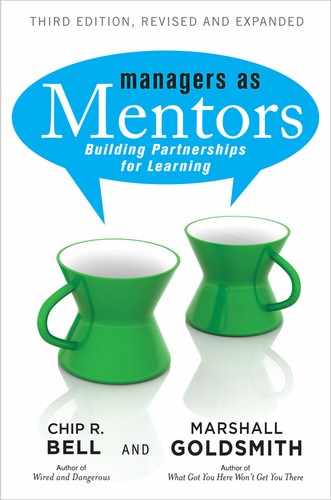Surrendering
Accepting
Gifting
Extending
PART 4
GIFTING—THE MAIN EVENT
Generosity is not giving me that which I need more than you do, but it is giving me that which you need more than I do.
Khalil Gibran
Gifting is an assertive stance, not a reciprocal one. True gifting is the expression of abundance without any expectation of a gesture in response. And it is a deliberate and intentional action rather than simply a personality trait or kind manner. When gifting happens, the world moves in response.
Steve Curtin is a successful customer service consultant and a friend of ours. He tells a great story about the power of gifting. His seven-year-old’s soccer team went to a frozen yogurt shop for some treats after a game. We’ll let Steve tell his story.
“The first girl to receive her yogurt, Anna, sat by herself at one of the tables while the other girls waited on their yogurt orders. Anna is new to the team while the rest of the girls have played soccer together for two full seasons.
“As the other girls began receiving their yogurts, one by one they sat together at a table across from Anna’s. One of the girls, after receiving her order, chose to sit with Anna. However, before she could sit down, one of her teammates pulled her chair over to the crowded table and said, ‘Here, Kennedy, sit with us!’
“Instead, Kennedy slid the chair back to Anna’s table and said, ‘I’m going to sit with Anna.’
“And with that, one by one, every girl who was seated at the crowded table moved her chair over to Anna’s table. And then they were a team.”
After you extend the invitation to the mentoring process (through surrendering) and establish the relationship (through accepting), the platform is set for the main event: gifting. Essentially, the protégé is in the presence of the mentor for the gifts the mentor can offer. However, the way this encounter is managed can make a dramatic difference in the quality of both the learning and its retention.
Gifting is an expression of generosity. It is different from giving. “Giving” often implies some reciprocal toll; “gifting” is the bestowing of assets without any expectation of return. The spirit of gifting changes the nature of the relationship from guilt-based indebtedness to joy-driven partnership. And the alliance of mentor and protégé is far healthier when the pleasure of teaching exactly matches the enchantment of learning. Why is this so?
Relationships are healthier when there is some reciprocity or balance—not perfectly fifty-fifty, but some appropriate level of fairness. Most learner-takers, however, feel indebted to their mentor-givers: “She gives so much, and I have nothing to give in return.” This is how guilt, liability, and obligation get started. Such anxieties, no matter how subliminal, get in the way of effective development. The learner has no tangible way to balance the relationship, at least in the short run. So it is important for the mentor to show that she has been amply rewarded by the opportunity to mentor and the pleasure inherent in the process. Reciprocity is the mentor’s saying indirectly to the protégé, “My payment is the sheer joy I get from seeing you grow and learn. You owe me nothing.”
The next six chapters will explore several dimensions of gifting. The opening chapter in this part zeroes in on the most frequent gift associated with mentoring: advice. The challenge mentors face is how to deliver advice without surfacing protégé resistance. The next chapter examines another important gift, that of feedback. Learner motivation is enhanced by the protégé’s perceiving a valued purpose in the learning. It is incumbent on the mentor to communicate the rationale for what is to be learned. Balance is another important contribution to the learning process. Stories have been the tools of learner discovery since the campfire was invented. A section on mentor gifts would not be complete without a piece on storytelling. The last chapter addresses perhaps the most important gift of the mentor: passion. Few attitudes fuel the excitement of a learner more than to witness her or his mentor excited by the process of learning and zealous about prospects of protégé growth. In the next part, we look at this phase of mentoring from the protégé’s side, a perspective that also shows how great mentors deal with the guilt and gratitude that accompany gifting.
